Dr. Fraudster Still Deceiving Surgery Patients on Google
Convicted Dr. Sajan and his Seattle plastic surgery clinic don't just rank highly in the 3-Pack, they often rank first for money phrases such as "best plastic surgeon." Google has done little to limit their visibility despite their deceptive SEO and illegal review methods leaving consumers at risk.
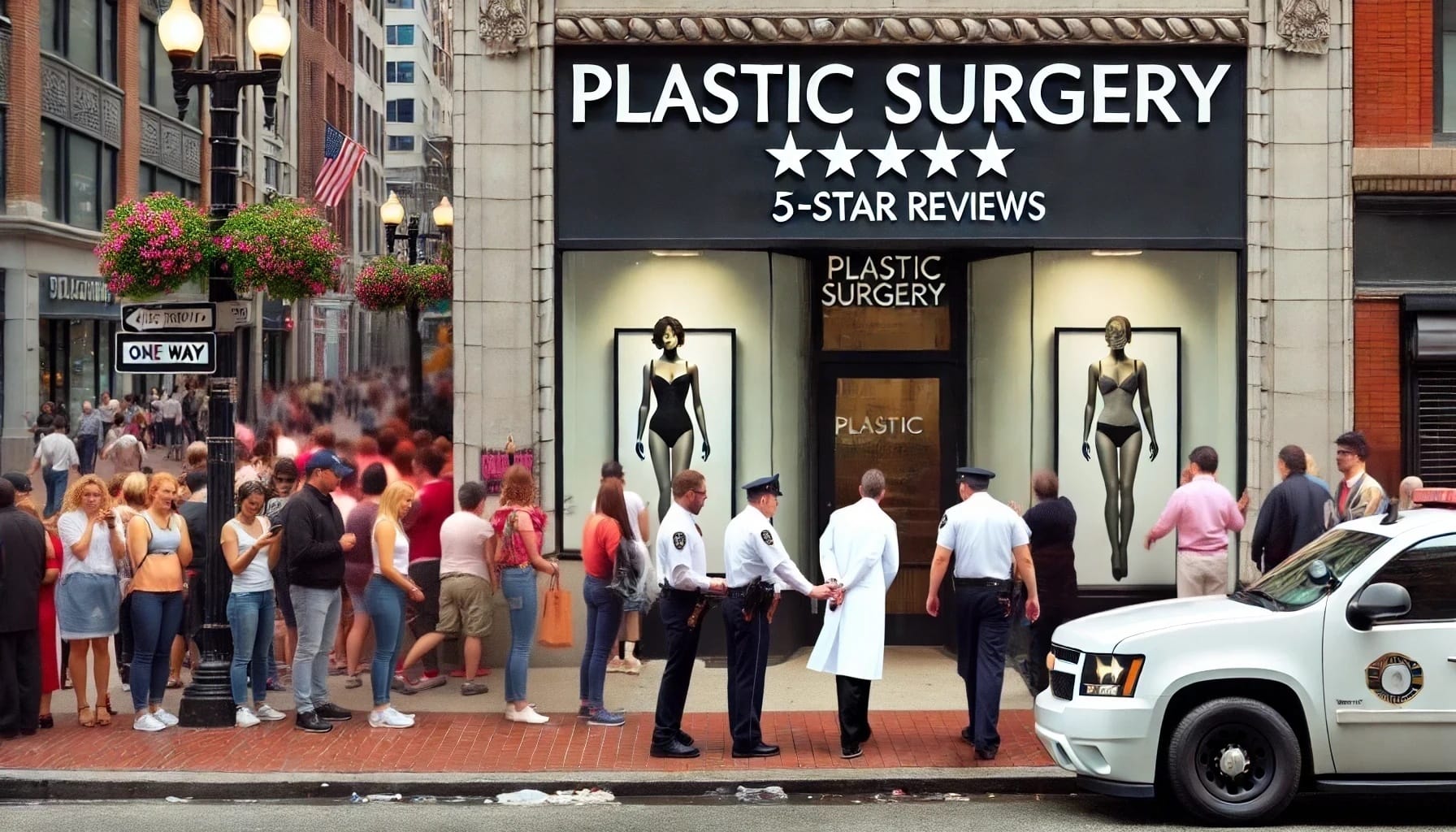
Dr. Javad Sajan of Allure Esthetic in Seattle was convicted of fraudulent review practices in April, 2024 and in July he entered into a consent decree to pay $5 million in fines and restitution. As part of that agreement he was ordered to "perform a full audit of all public reviews on Google, Yelp, WebMD and other third-party review platforms, and request removal of every review Allure was involved in creating, posting or shaping in any manner."
And yet, as of today, Google has removed few if any of these ill-gotten reviews, the rating remains essentially the same and the rank manipulating company name spam remains.


Crime Seems to Pay
Dr. Sajan and his practice don't just rank highly in the 3-Pack, but often rank first for money phrases such as best plastic surgeon, best plastic surgeon Seattle, cosmetic surgeon Seattle, plastic surgeon Seattle. The name spam and reviews contribute to this shit show.
Searchers see his listing with a 4.8 rating and 935 reviews. That is 500 more reviews than the nearest in-market competitor. And his listing is highly visible across search, Maps and ads.
We know from our consumer research in the medical vertical that people looking for a physician look for doctors with the highest ratings and the most reviews. Despite being charged and convicted, this business is still benefiting from its deceptive Google listing – five months after being declared guilty and three months after agreeing to remove the reviews.
In the 10 months since the case became public, Sajan's practice continues to leverage Google's cornucopia of leads despite being fundamentally deceptive. Given the high average cost of plastic surgery and the large number of patients this firm handles, its ranking could have contributed somewhere on the order $250,000+ (or more) in income since the inception of the lawsuit alone; and over the past 7 years, many times that.
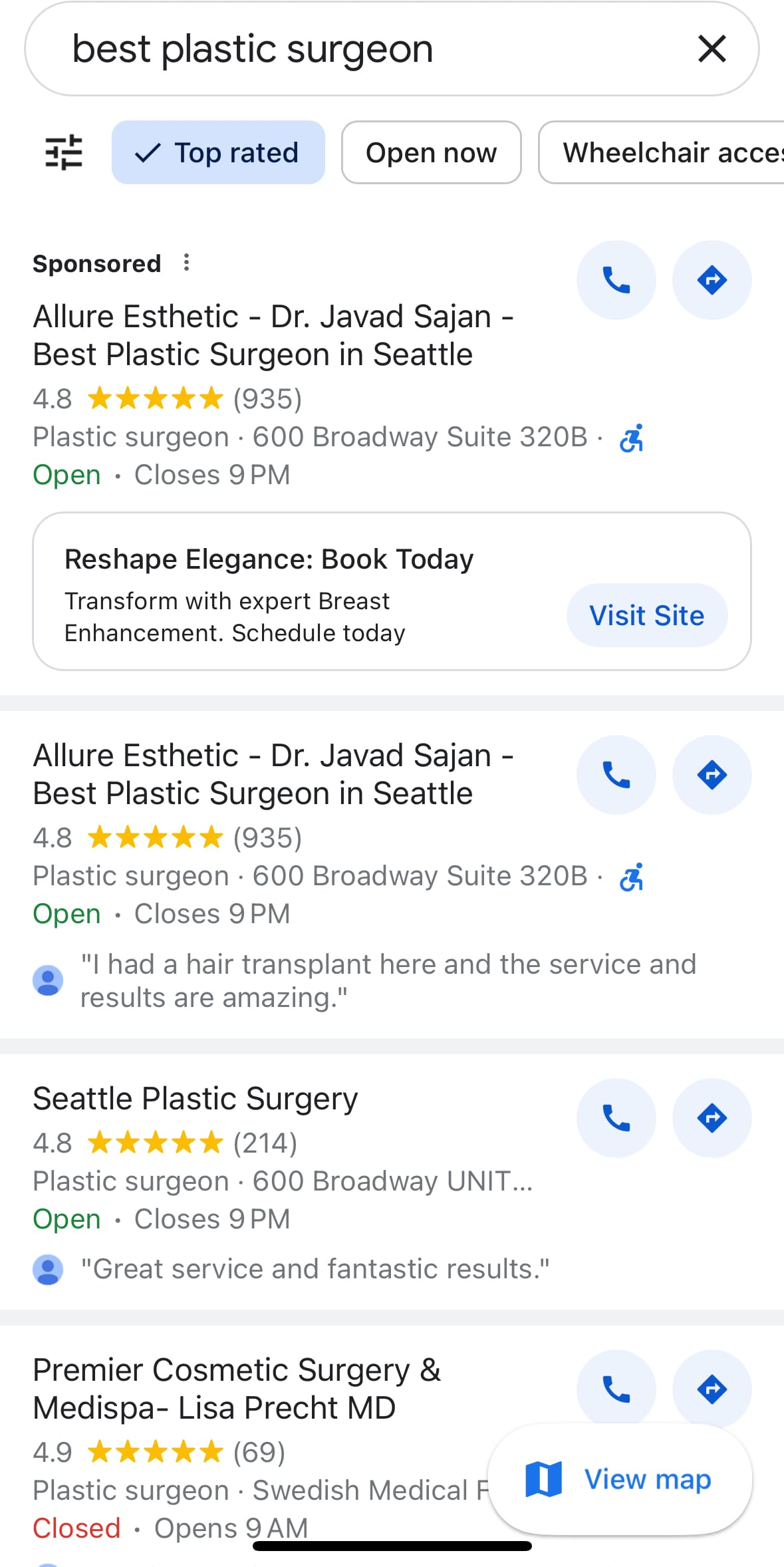
What Did Google Know and When?
According to the lawsuit filed by the Attorney General of Washington, from 2017 to 2019 Allure required patients to sign non-disclosure agreements that restricted them from posting negative reviews. In addition, the lawsuit highlighted, from 2018 to 2021, employees and subcontractors posted fake positive reviews using VPNs. This makes every review during that period suspect and appropriate for removal by Google. Yet 522 of his 935 reviews are from that period (2017 - 2021) and remain on his profile.
It's very likely that Google knew about this suit early because of the Attorney General's investigations (and discovery) as well as court filings in 2023 and early 2024. However, just to be sure, we notified Google on July 16, 2024 of the case and its outcome via the Business Complaint Redressal Form.
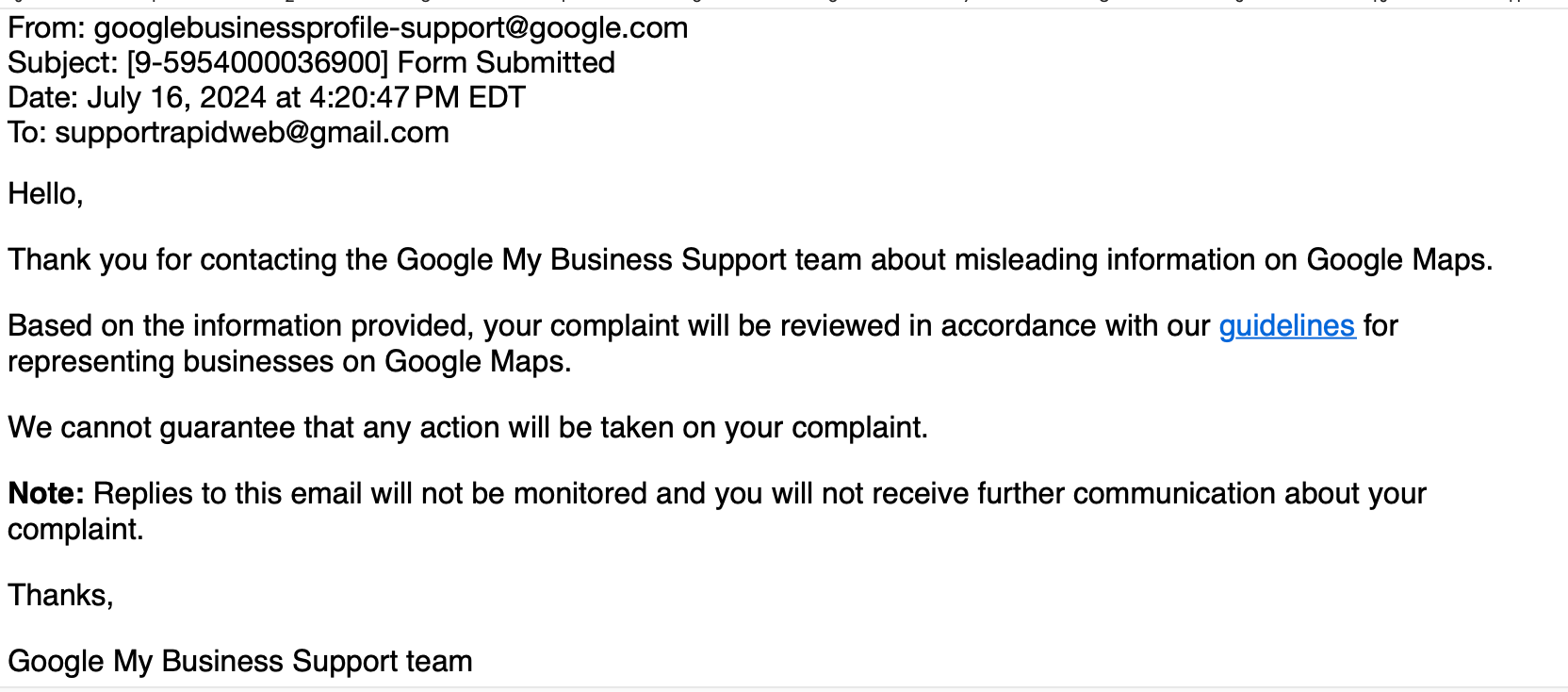
Google readily removes reviews from businesses that incentivize reviews, from the initial date of incentive. And yet, for some reason, these reviews and the name spam remain. (Yelp only does slightly better.)*
Google's Scam Spotting Tips
Google recently published a post detailing the company's ability to block 99.9% of Gmail scams. They also note that Search is 99% spam free. And Google offers a range of tips for avoiding internet scams. These include five ways that consumers and businesses should take action to protect themselves. But for the scams actually appearing on Google, you're essentially on your own. This is no more clear than in the case of plastic surgery in Seattle.
Choosing the wrong plastic surgeon can have profound and long term negative consequences. If any business categories should be monitored and moderated in search results, surgery should be among them. Yet in this case it's incredibly difficult for a consumer to assess the reputation of Allure Aesthetics or even learn that they cheated on their reviews over the past 7 years.
Google Ads, Local and Organic search results and Google Maps all suggest this business is exemplary. It is almost impossible for a typical consumer, that only looks at ratings and generally trusts them, to know the backstory without a significant amount of additional effort and searching.
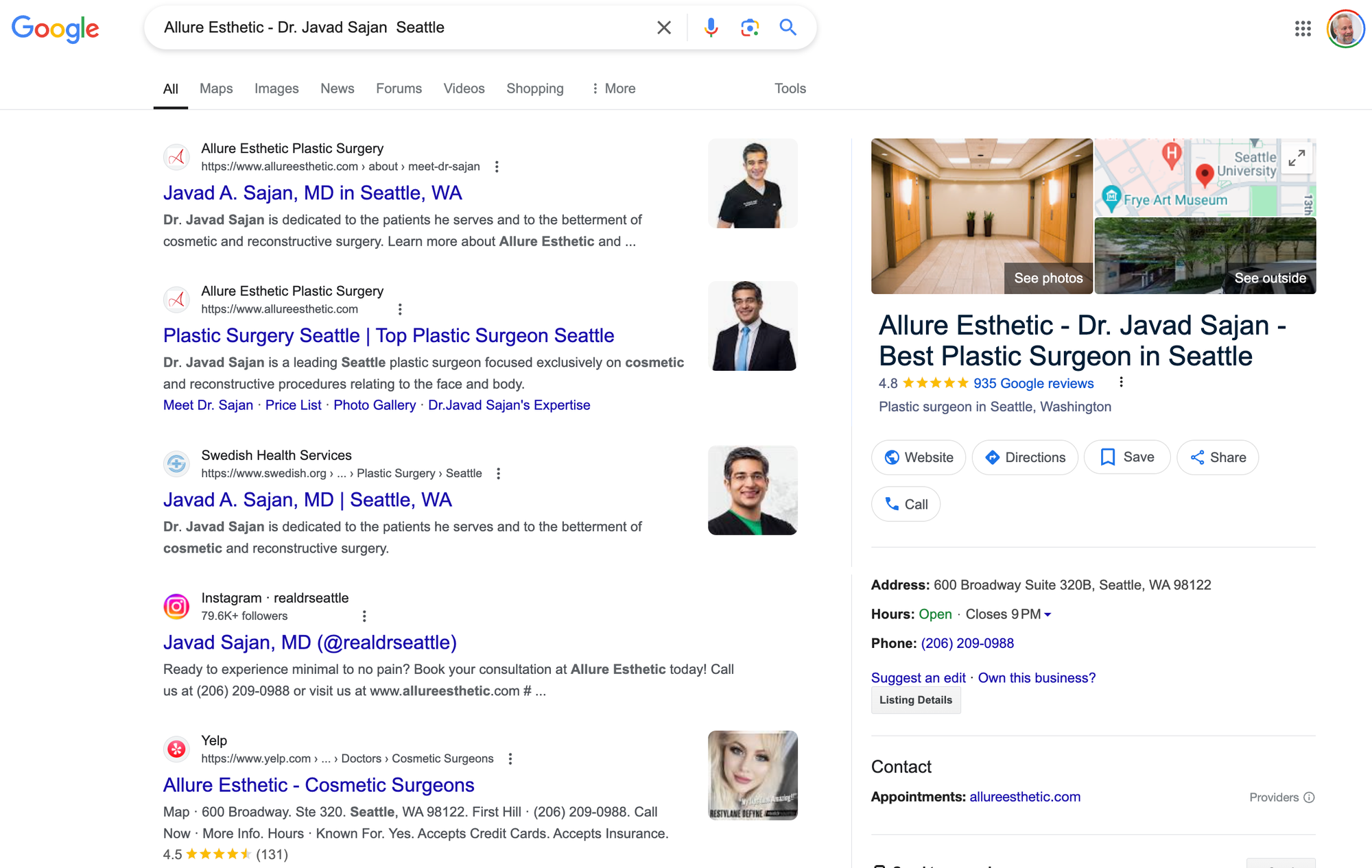
Given how buried the links are to the review fraud case against this doctor and practice, it's likely that the firm has hired a "reputation management" firm to push negative results down the page.
What Should Happen Now?
Shouldn't consumers have a right to know that this company was cheating on their reviews by illegally avoiding negative reviews and fraudulently generating positive ones? Shouldn't that information be front and center for both Google and Yelp? Shouldn't the Google Business Profile and search results on Google carry additional information alerting the public to the problem? Shouldn't this business be prevented from using name spam to manipulate the search results?
My answer to all of those questions is an emphatic YES!
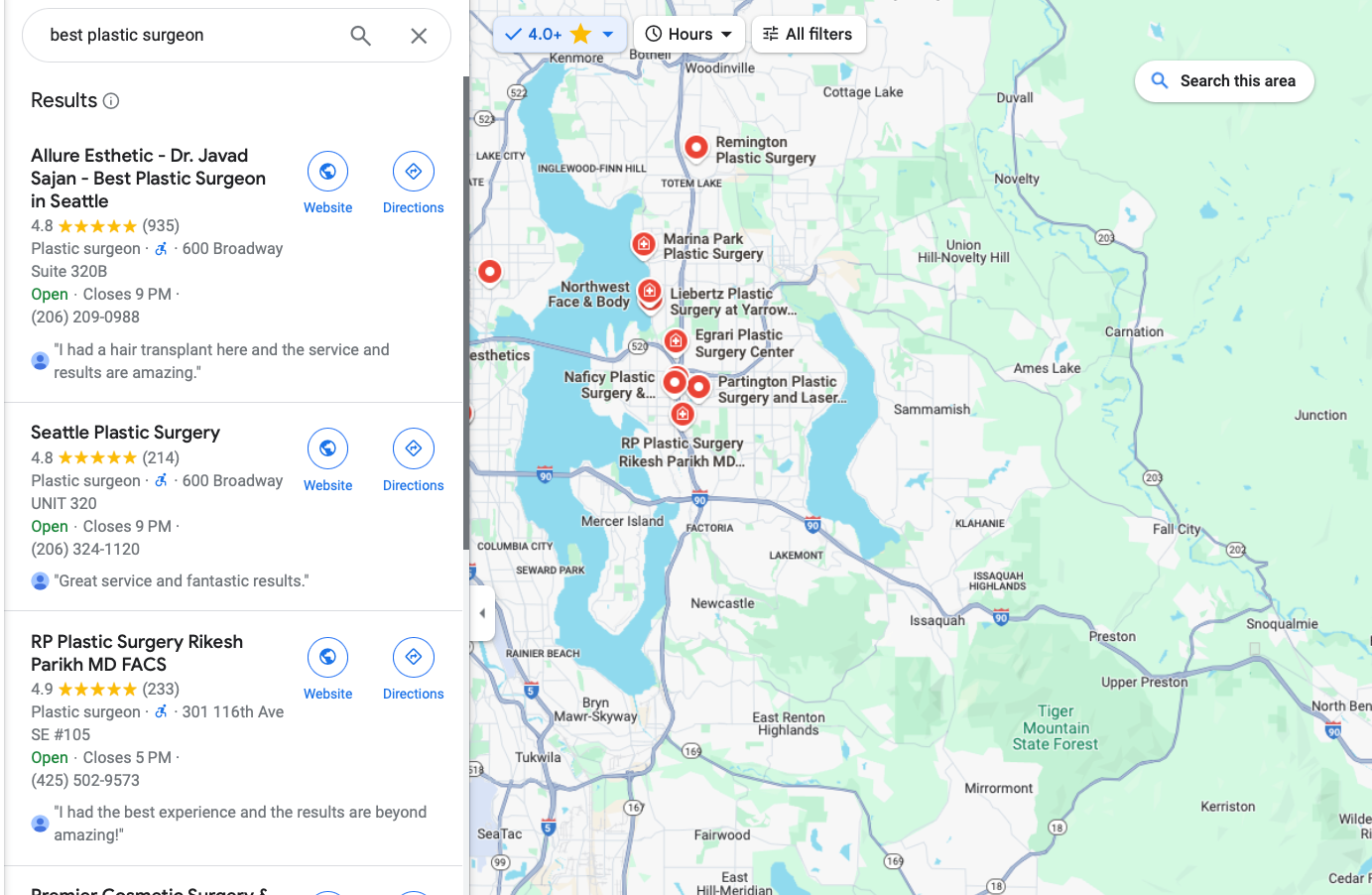
'Badge of Shame' Not Enough
We have seen indications that Google might start including a Review Badge of Shame (similar to Yelp's Consumer Alerts) to notify users when certain review abuse situations arise. That is a small start. In this case even that would not be enough. Somewhere on the order of 75% of searchers never read the actual reviews when looking for physicians and thus probably wouldn't see the badge.
Because the business is so visible in the search and ad results, any shaming badges would need to also be visible within the Local 3-Pack and the Local Finder. Given the risk to consumers in this case, this business should have a substantial number of their reviews removed (at least those >500 or so solicited during the 4 years that the law suit covers). And their manipulation of search results using name spam should lead to a significant loss of search and ad visibility.
The sad truth is that Google has complied with the law, in its current form. All too often Google hides behind the immunity shield of Section 230, which protects it against lawsuits stemming from unethical, illegal, abusive or fraudulent activity on the platform. But shouldn't Google have a greater ethical, if not legal, obligation to notify the public – once they're put on notice of illegal or other significant harmful conduct on their platform?
My answer to that is yes and yet here we are, with this plastic surgeon continuing to profit despite being convicted of review fraud, and obviously violating Google's TOS and guidelines.
*While Yelp [is showing](https://www.yelp.com/biz/allure-esthetic-seattle-3) a badge of shame far down their page, above the fold we see a 4.5 rating with 131 reviews. This is still too good for a practice convicted of review fraud. And 87 of the 131 reviews on Yelp were posted during the period between 2017 and 2021, the relevnt period of the conviction. The Yelp search visiblity only serve to bolster this firm's reputation.
